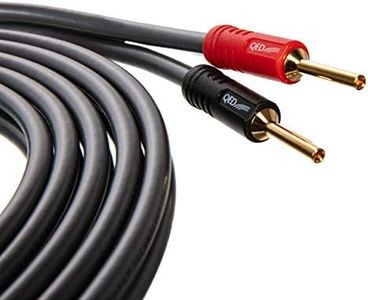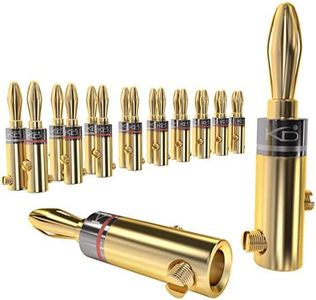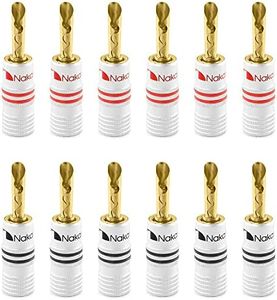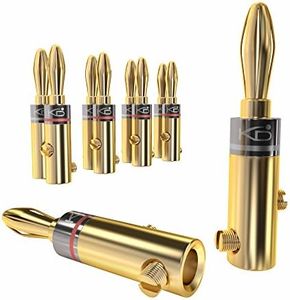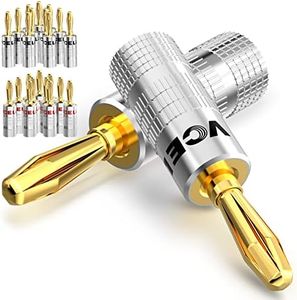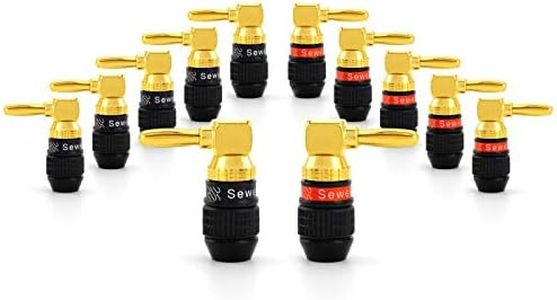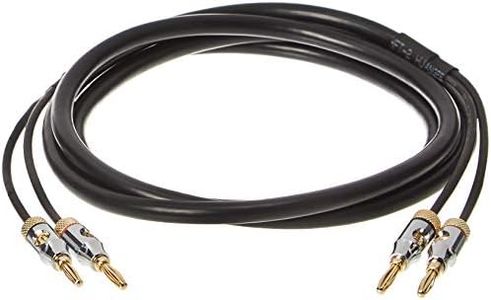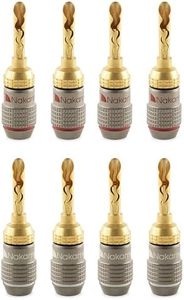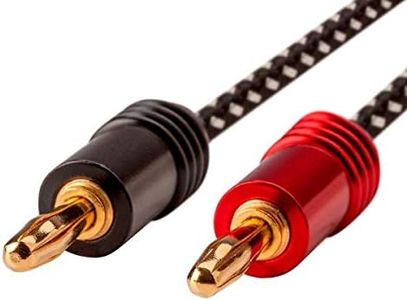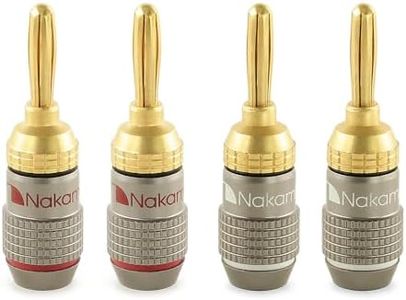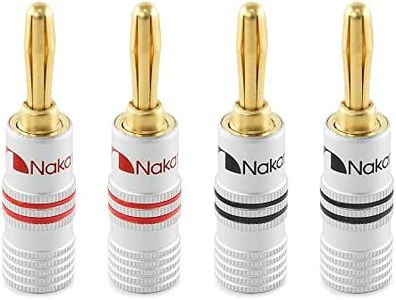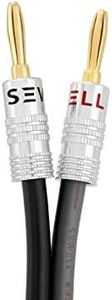We Use CookiesWe use cookies to enhance the security, performance,
functionality and for analytical and promotional activities. By continuing to browse this site you
are agreeing to our privacy policy
10 Best Banana Plugs
From leading brands and best sellers available on the web.By clicking on a link to a third party's website, log data is shared with that third party.
Buying Guide for the Best Banana Plugs
When you're looking to buy banana plugs, it's important to understand why and how they're used. Banana plugs are connectors often used to attach speaker wires to amplifiers or speakers. They make connections neat, reliable, and easy to change. Picking the right banana plug will help you set up audio equipment with maximum convenience and good sound performance. Focusing on a few key features will help you choose the banana plug that fits your specific needs.Compatibility (Wire Gauge Range)Wire gauge, or thickness, is one of the most important factors to consider when choosing banana plugs. Banana plugs are designed to fit certain wire thicknesses, typically ranging from 10 AWG (very thick) to 18 AWG (thinner). Gauge matters because you want a solid and secure connection: too loose or too tight can impact performance or be difficult to install. Most people working with home audio use speaker wire between 12 and 16 AWG. To pick the right banana plug, check the wire gauge of your cables and ensure the plug is rated for that size. If you're unsure, measure your wire or look up your speaker wire's specifications.
Connector Type (Screw, Solder, or Compression)Banana plugs come in various connection methods: screw-type, solder-type, or compression (self-crimping). Screw-type plugs use little screws to clamp down on the wire, making them easy to install and remove without any special tools. Solder-type plugs require you to melt solder to secure the wire, which is very secure but needs a soldering iron and some skill. Compression plugs let you insert the wire and tighten the body to pinch it, offering a balance between convenience and security. Think about how comfortable you are with tools or if you plan to swap wires often – screw and compression types are best for frequent changes, while solder is for a permanent, high-quality fit.
Body Material and PlatingMaterials used in banana plugs, especially the metal part, affect durability and performance. The most common metals are brass and copper, often with gold plating to prevent corrosion and improve signal transfer. Plastic or metal housings protect the connector. Gold plating is very helpful if you want low maintenance and the best longevity, especially in humid environments. Plain metal plugs are fine for dry, indoor settings. If you want long-lasting performance without frequent cleaning or if your audio setup is near moisture, gold-plated plugs are the way to go.
Plug Design (Closed vs. Open Screw, Stackable, Angle)Banana plugs have different shapes and features. Closed screw designs hide the wire, while open screw ones let you see where the wire attaches. Some plugs are stackable, allowing you to connect multiple plugs into one socket for bi-wiring or adding speakers. Angled plugs (like right-angle) help if you have limited space behind your audio equipment. Think about where your speakers and equipment sit: if space is tight behind your gear, look for right-angle plugs; if you want a cleaner look, closed screw is often nicer and safer (no stray wire strands).
Fit and Grip (Spring Tension and Size)A good banana plug needs a solid, reliable grip in the speaker socket to avoid loose connections, which can cause sound issues or even damage. Some plugs have extra spring tension or expanding fins to hold tightly in the hole. There are also slightly different sizes: European and American sockets can vary. If you notice your plugs slip out easily, you might need a different style or something with extra spring grip. Test them if possible before purchase, or read reviews to see if other users report a good, snug fit for your equipment type.
